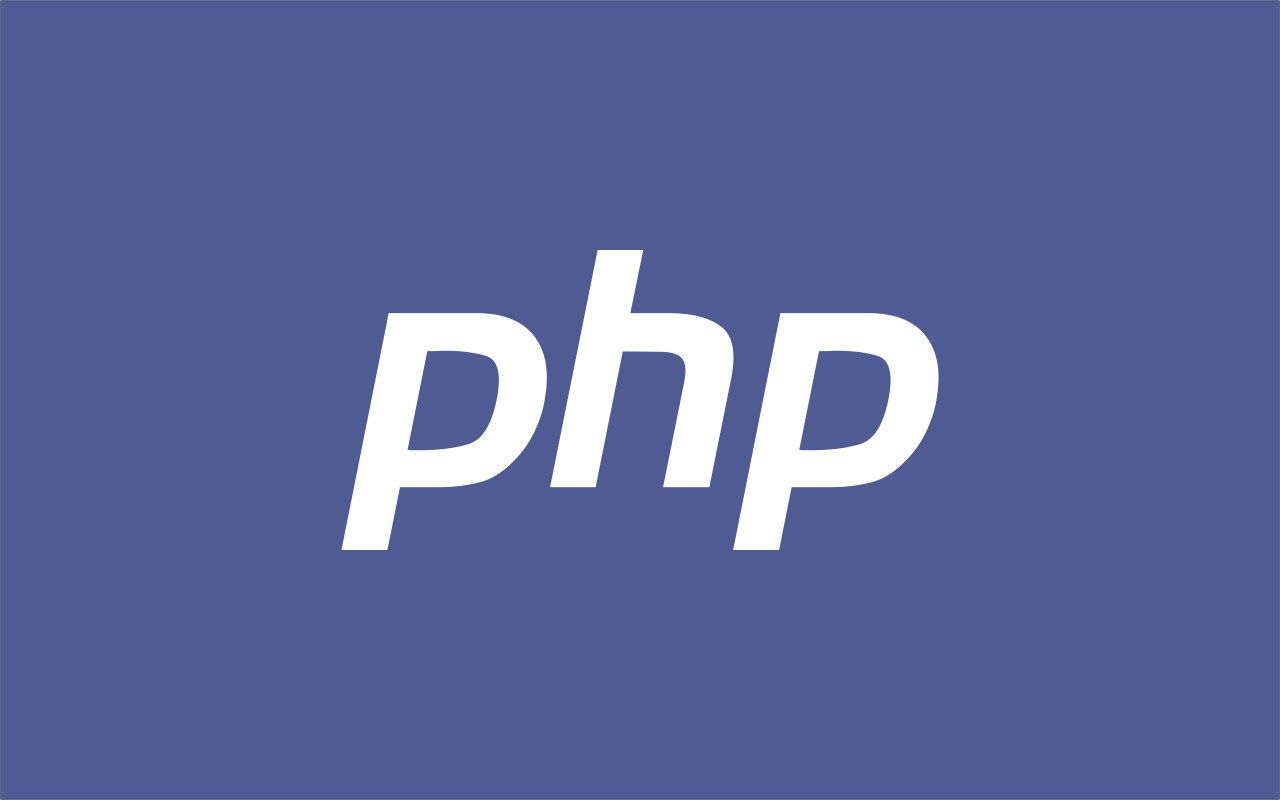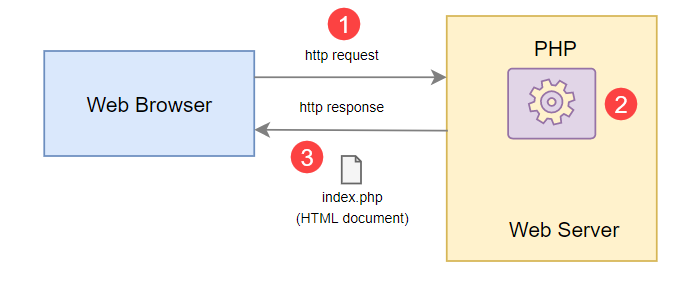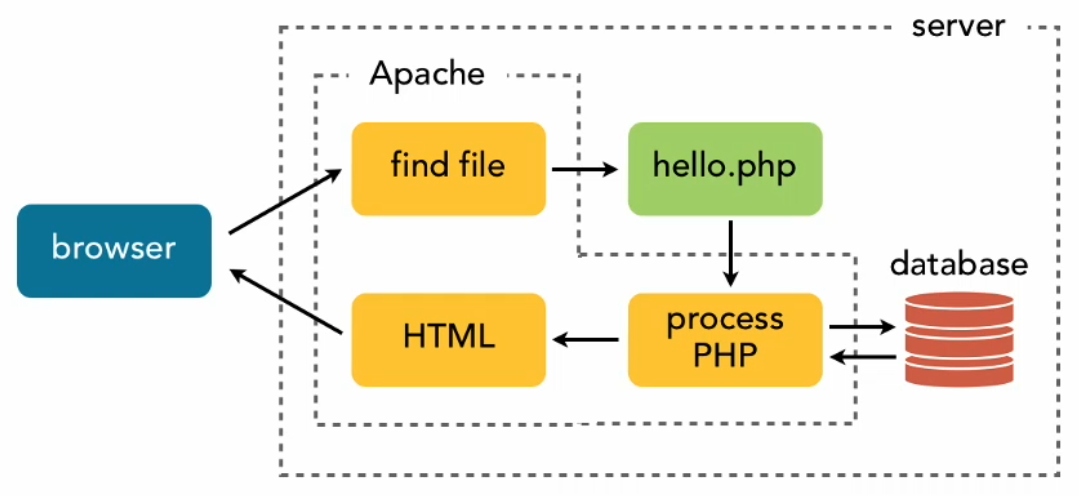TECHNOLOGY
Is PHP Still Relevant? 12 Reasons Why PHP is Still Relevant in Web Development

PHP is still relevant due to its active developer community and constant updates, ensuring it keeps up with industry standards.
While some developers may question PHP’s relevance, it’s essential to understand that PHP is still relevant and widely used in modern web development.
PHP, one of the web’s venerable programming languages, has a remarkable history of powering websites, both big and small.
In this ever changing tech landscape driven by artificial intelligence, you might wonder whether PHP still holds its ground. The answer is a resounding “yes”. PHP is still relevant, and its adaptability and extensive features make it an enduring force in the world of web development.
What is PHP?

PHP, which stands for “Hypertext Preprocessor,” is a widely used, server-side scripting language primarily designed for web development. It is a versatile and powerful language that is embedded within HTML code, allowing developers to create dynamic web pages and interactive web applications.
What Are the Key Characteristics and Uses of PHP?

Many popular websites and applications continue to rely on PHP as a robust and versatile scripting language.
Here are the key characteristics and uses of PHP include:
Server-Side Scripting
PHP is executed on the web server, meaning that its code is processed on the server before the resulting HTML is sent to the client’s web browser. This allows for dynamic content generation and interaction with databases.
Embeddable
PHP code can be easily embedded within HTML, making it seamless to combine static and dynamic content. PHP tags, typically enclosed within <?php and ?>, allow developers to switch between HTML and PHP code.
Database Interaction
PHP can connect to various databases, such as MySQL, PostgreSQL, SQLite, and MongoDB. This makes it an excellent choice for building data-driven web applications like content management systems (CMS) and e-commerce platforms.
Session Management
PHP supports the management of user sessions, enabling the creation of personalized user experiences, login systems, and secure authentication.
Form Handling
It simplifies the processing of HTML forms, making it easy to collect and validate user input, and interact with databases based on that input.
File Handling
PHP can read, write, and manipulate files on the server, which is valuable for tasks like file uploads and management.
Integration with Web Servers
PHP can run on popular web servers such as Apache, Nginx, IIS, and Lighttpd. It is often used with the Apache web server, with which it is commonly referred to as the “LAMP” stack, along with Linux and MySQL.
Support for Various Protocols
PHP supports a wide range of internet protocols, making it well-suited for tasks like creating RESTful APIs, interacting with external web services, and handling network communication.
Security Features
PHP includes built-in functions and features for handling security-related concerns, such as data validation, encryption, and protection against common web vulnerabilities like SQL injection and cross-site scripting (XSS).
Active Community
PHP has a large, active, and supportive developer community. This community contributes to the language’s development, offers extensive documentation and tutorials, and provides a wealth of open-source libraries and frameworks.
PHP’s widespread use in web development has made it a valuable skill for developers working on a broad range of projects, from simple personal websites to complex enterprise-level applications. Despite the emergence of alternative technologies, PHP continues to be a relevant and well-utilized language in the ever-evolving world of web development.
12 Compelling Reasons Why PHP is Still Relevant in Web Development
if you’re considering learning a programming language or embarking on a web development project, rest assured that PHP is still relevant and a valuable skill to possess. Here are 12 reasons why PHP is still relevant in web developmement.
1. Beloved Programming Language
According to W3Techs, PHP continues to dominate, with around 79% of all websites utilizing it. It outpaces other server-side programming languages like ASP.NET by a considerable margin, and its usage share remains steady, defying competition.
PHP is the most beloved programming language, with a projected market share of 49.47% in 2023. This suggests that PHP developers are content with their choice, indicating long-term relevance.
2. Unmatched Versatility
PHP is a versatile language, suitable for a range of web development projects, from simple scripts to complex applications. It handles data processing, form validation, email sending, session management, and more. It seamlessly interacts with various databases, including MySQL, PostgreSQL, MongoDB, and SQLite.
3. Accessibility and Embeddability
PHP can be effortlessly embedded into HTML, facilitating the combination of dynamic and static content. Alternatively, it functions as a standalone language, complete with a command-line interface (CLI) or a graphical user interface (GUI).
4. Ease of Learning
With its high-level, interpreted nature and straightforward, expressive syntax, PHP is an accessible language. It doesn’t impose strict typing, memory management, or compilation, and benefits from extensive documentation and a supportive community of developers.
5. Platform and Server Agnostic
PHP is platform-agnostic, compatible with Windows, Linux, Mac OS X, and Unix. It also supports various web servers, including Apache, Nginx, IIS, and Lighttpd. Installation is a breeze, and portable servers like XAMPP enable usage without installation.
6. Adherence to Web Standards and Protocols
PHP aligns seamlessly with web standards and protocols such as HTML, CSS, JavaScript, XML, JSON, SOAP, REST, and OAuth. It also exhibits compatibility with other languages and technologies through extensions or libraries.
7. Scalability at its Core
PHP is built for scalability, capable of handling high traffic and substantial data volumes without compromising performance or reliability. It scales horizontally through server additions or vertically via hardware upgrades. Caching and load balancing tools further optimize efficiency.
8. Robust Security Features
PHP incorporates a range of features and functions designed to thwart common security threats, including cross-site scripting (XSS), SQL injection, cross-site request forgery (CSRF), and remote code execution (RCE). Support for encryption, hashing, password hashing, SSL/TLS certificates, and HTTP authentication further bolsters security.
9. Modern Evolution
PHP continuously evolves to meet the shifting demands of web development. PHP 8.1, released in November 2022, introduces new features like enums, fibers, readonly properties, intersection types, array unpacking, named arguments, and attributes, enhancing expressiveness, power, readability, and maintainability.
10. Flexibility and Rich Ecosystem
PHP respects developer choices, allowing them to define their coding style and conventions. It imposes no strict coding rules and supports the use of a variety of tools and frameworks. The PHP ecosystem boasts a plethora of frameworks like Laravel, Symfony, CodeIgniter, and more, offering features such as routing, templating, validation, authentication, and testing.
11. Pioneering Spirit
PHP not only adapts to contemporary trends but also spearheads innovation. The Laravel framework, in particular, has introduced groundbreaking concepts and tools that have redefined PHP development. Laravel’s Artisan, Eloquent, Blade, and other components have revolutionized the PHP landscape and inspired numerous other frameworks and projects.
12. Endless Enjoyment
Using PHP isn’t just about coding; it’s about a fulfilling and enjoyable experience. Developers find the language a canvas for their creativity and a path for skill enhancement. PHP provides diverse solutions and challenges, rewarding developers with satisfying results.
PHP Remains Very Popular in Web Development

PHP remains highly relevant and maintains its enduring popularity. With its versatility, ease of learning, compatibility, security, modernity, flexibility, innovation, and overall fun factor, PHP continues to be a cornerstone of web development, backed by a thriving community of passionate developers. Its adaptability to contemporary needs and pioneering spirit ensure that it is well-positioned for the future.















